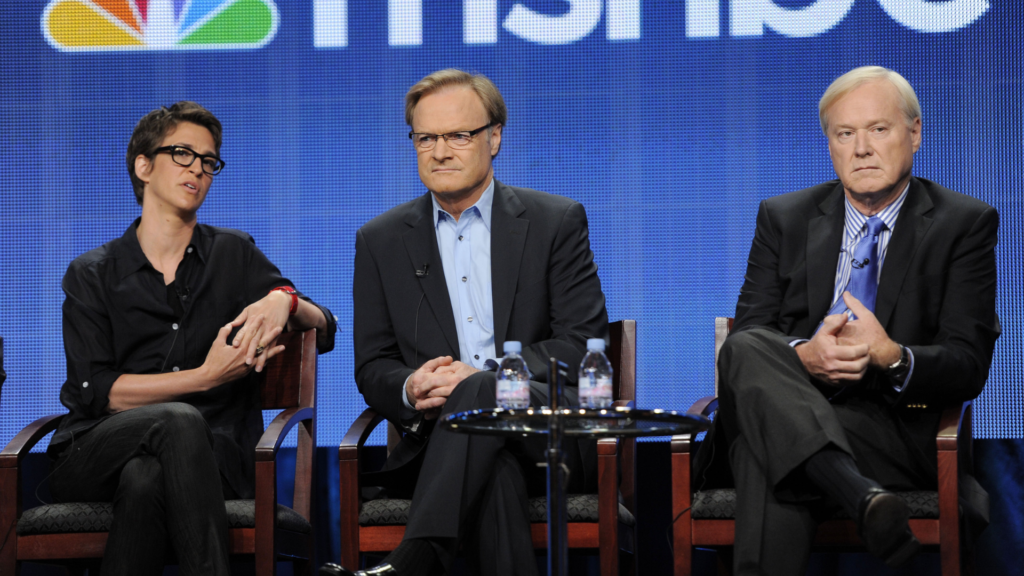
Mark Lazarus, the new head of SpinCo, is reportedly exploring ways to bring more Republican voices to MSNBC’s programming. SpinCo, created by Comcast’s decision to spin off multiple channels into a separate entity, places Lazarus at the helm of managing MSNBC’s future direction.
According to sources familiar with the matter, Lazarus has expressed a desire to address the public perception that MSNBC is unfair to Republicans.
In private conversations over the past month, he has indicated an interest in incorporating conservative perspectives into the network’s programming.
His goal appears to be fostering a broader audience by mitigating content that could alienate GOP viewers or generate unfavorable press.
Despite these intentions, Lazarus reportedly does not aim to overhaul MSNBC’s progressive identity. Key figures such as Rachel Maddow are not expected to face pressure to adjust their programming.
Thus far, no formal editorial directives have been issued to anchors or producers as Lazarus continues to meet with staff and understand the network’s dynamics.
Lazarus is reportedly considering a dual approach: a daytime schedule with a stronger emphasis on news reporting that includes conservative voices, while maintaining MSNBC’s progressive opinion-driven programming in the primetime slots.
This strategy could allow MSNBC to broaden its audience without alienating its core base of progressive viewers. However, implementing such changes may prove challenging.
According to a report by Status, gaining participation from MAGA-aligned conservatives may be difficult. Many of these figures dismiss MSNBC’s platform as part of the “#Resistance,” while traditional conservatives willing to criticize former President Donald Trump are often perceived as disconnected from the modern Republican base.
Status journalist Oliver Darcy speculated that Lazarus might envision MSNBC evolving into a format similar to CNBC, a business-focused sister network that balances a variety of perspectives.
Lazarus’s efforts come at a critical time for MSNBC, as rumors circulate about the potential departure of network president Rashida Jones. Reports suggest she may step down following the inauguration of President-elect Donald Trump.
Compounding these leadership uncertainties, MSNBC is grappling with declining ratings. Lazarus’s initiative to diversify the network’s political representation could be part of a broader strategy to reverse this trend and solidify the network’s place in an increasingly competitive media landscape.
While no immediate changes are planned, Lazarus’s vision suggests a shift toward greater inclusivity of conservative voices, signaling a potential recalibration of MSNBC’s image. Whether these adjustments will resonate with audiences or face resistance within the network remains to be seen.
As Lazarus continues to meet with key stakeholders and develop his strategy, the future of MSNBC may reflect a more nuanced balance of perspectives—one that seeks to maintain its progressive foundation while appealing to a broader political spectrum.

